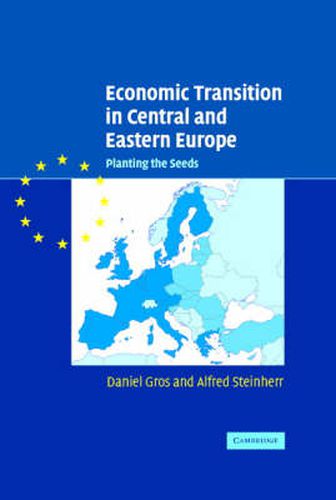Readings Newsletter
Become a Readings Member to make your shopping experience even easier.
Sign in or sign up for free!
You’re not far away from qualifying for FREE standard shipping within Australia
You’ve qualified for FREE standard shipping within Australia
The cart is loading…






Analysing the key problems facing the transition countries in Central and Eastern Europe, this accessible book describes the legacy of the central planners, the progress achieved so far and the need for further reforms. It documents the outstanding successes and failures, and analyses why certain approaches to transition have worked and others have not. It tests where transition is over and shows how some countries have graduated from ‘transition’ to ‘integration’ through their efforts to join the European Union (EU). It discusses the costs and benefits of the eastern enlargement of the EU. The specific experiences of German unification, the Soviet Union’s disintegration, and Russia’s complex reforms are examined, as are the specific issues that need to be addressed in the Balkans. The book concludes by indicating how the expanding EU could help the poor performers through inclusion in a continent-wide integrated economic area.
$9.00 standard shipping within Australia
FREE standard shipping within Australia for orders over $100.00
Express & International shipping calculated at checkout
Analysing the key problems facing the transition countries in Central and Eastern Europe, this accessible book describes the legacy of the central planners, the progress achieved so far and the need for further reforms. It documents the outstanding successes and failures, and analyses why certain approaches to transition have worked and others have not. It tests where transition is over and shows how some countries have graduated from ‘transition’ to ‘integration’ through their efforts to join the European Union (EU). It discusses the costs and benefits of the eastern enlargement of the EU. The specific experiences of German unification, the Soviet Union’s disintegration, and Russia’s complex reforms are examined, as are the specific issues that need to be addressed in the Balkans. The book concludes by indicating how the expanding EU could help the poor performers through inclusion in a continent-wide integrated economic area.